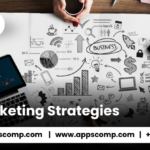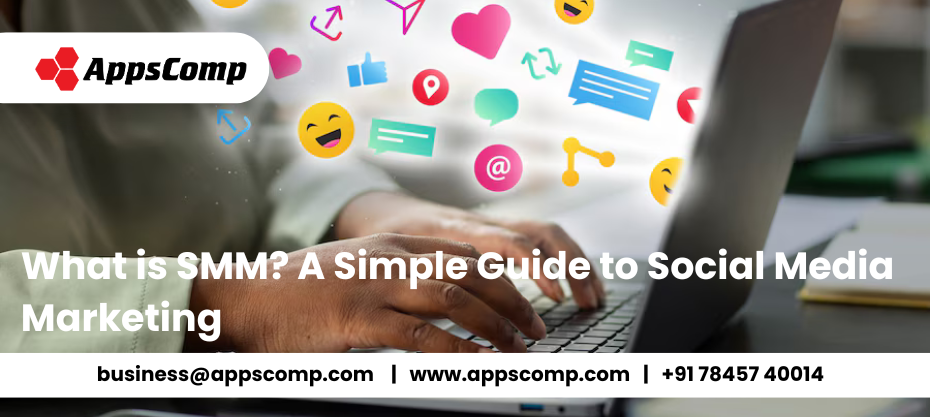
WordPress Insights
January 2, 2025
Digital Marketing Strategies
January 9, 2025Social Media Marketing (SMM) is a powerful way to promote businesses, products, or services using social media platforms. It helps companies connect with their audience, increase brand awareness, and drive website traffic. SMM is one of the most effective strategies in digital marketing today.
With billions of people active on social media, platforms like Facebook, Instagram, Twitter, LinkedIn, YouTube, and so forth, are great tools for reaching potential customers. Let’s explore what SMM is, how it works, and why it is essential for businesses.
What is Social Media Marketing (SMM)?
Social Media Marketing uses social media platforms to achieve marketing and branding goals. Businesses share content like text posts, images, videos, and ads to engage their audience. The main aim of SMM is to build a strong online presence, connect with the audience, and encourage them to take action.
SMM includes both organic and paid strategies:
- Organic SMM: Free methods like posting regularly, replying to comments, and sharing engaging content.
- Paid SMM: Using paid advertising to target specific audiences and boost visibility.
Why is Social Media Marketing Important?
Social Media Marketing has become essential for businesses. Here’s why:
- Wider Reach: Social media platforms have millions of active users daily. Businesses can reach a global audience without spending a lot.
- Cost-Effective: Compared to traditional advertising, SMM is more affordable and delivers better results.
- Improved Brand Awareness: By consistently posting valuable content, businesses can make their brand more recognizable.
- Audience Engagement: SMM allows businesses to directly interact with their customers. This builds trust and loyalty.
- Measurable Results: Social media platforms provide analytics tools to track performance. Businesses can measure likes, shares, clicks, and conversions.
How Does SMM Work?
To use SMM effectively, businesses follow these steps:
- Choose the Right Platform: Select platforms that match the target audience. For example, LinkedIn works best for professionals, while Instagram is great for younger audiences.
- Set Goals: Businesses decide what they want to achieve—more followers, website traffic, or product sales.
- Create Engaging Content: High-quality and relevant content attracts attention. Videos, infographics, and user-generated content are popular.
- Use Hashtags: Hashtags make posts discoverable to a broader audience.
- Run Paid Campaigns: Paid ads help target specific groups based on demographics, location, and interests.
- Track Performance: Tools like Facebook Insights and Google Analytics help measure the success of SMM efforts.
Common SMM Strategies
Here are some effective SMM strategies:
- Content Calendar: Plan and schedule posts for consistency.
- Live Videos: Live streaming attracts attention and engages the audience in real time.
- Influencer Marketing: Collaborate with influencers to promote products or services.
- Contests and Giveaways: These encourage users to participate and share content.
- User-Generated Content (UGC): Share content created by users, like reviews or testimonials.
Benefits of Social Media Marketing
Social Media Marketing offers many benefits:
- Increased Website Traffic: By sharing links to your website, you can attract more visitors.
- Boost in Sales: Social media ads and promotions can lead to higher conversions.
- Better Customer Insights: Social media platforms show what customers like, dislike, and want.
- Stronger Community: Engaging with followers builds a loyal customer base.
- Higher Search Engine Ranking: Regular activity on social media can improve SEO performance.
Top Tools for SMM
To simplify SMM, businesses use tools like:
- Hootsuite: For scheduling posts and tracking analytics.
- Canva: For creating eye-catching visuals.
- Buffer: For managing multiple social media accounts.
- Sprout Social: For in-depth social media insights.
- Google Analytics: For measuring website traffic from social media.
Challenges in SMM
SMM is not without challenges. Businesses must stay updated with trends and algorithms. Creating fresh and engaging content can also be time-consuming. However, with the right tools and strategies, these challenges are manageable.
Conclusion
Social Media Marketing (SMM) is a game-changer for businesses of all sizes. It helps connect with audiences, boost brand visibility, and drive growth. By using the right strategies and tools, businesses can make the most of social media’s potential. Whether you are a beginner or a seasoned marketer, SMM is an essential part of your digital marketing strategy. Start now and watch your business grow!




